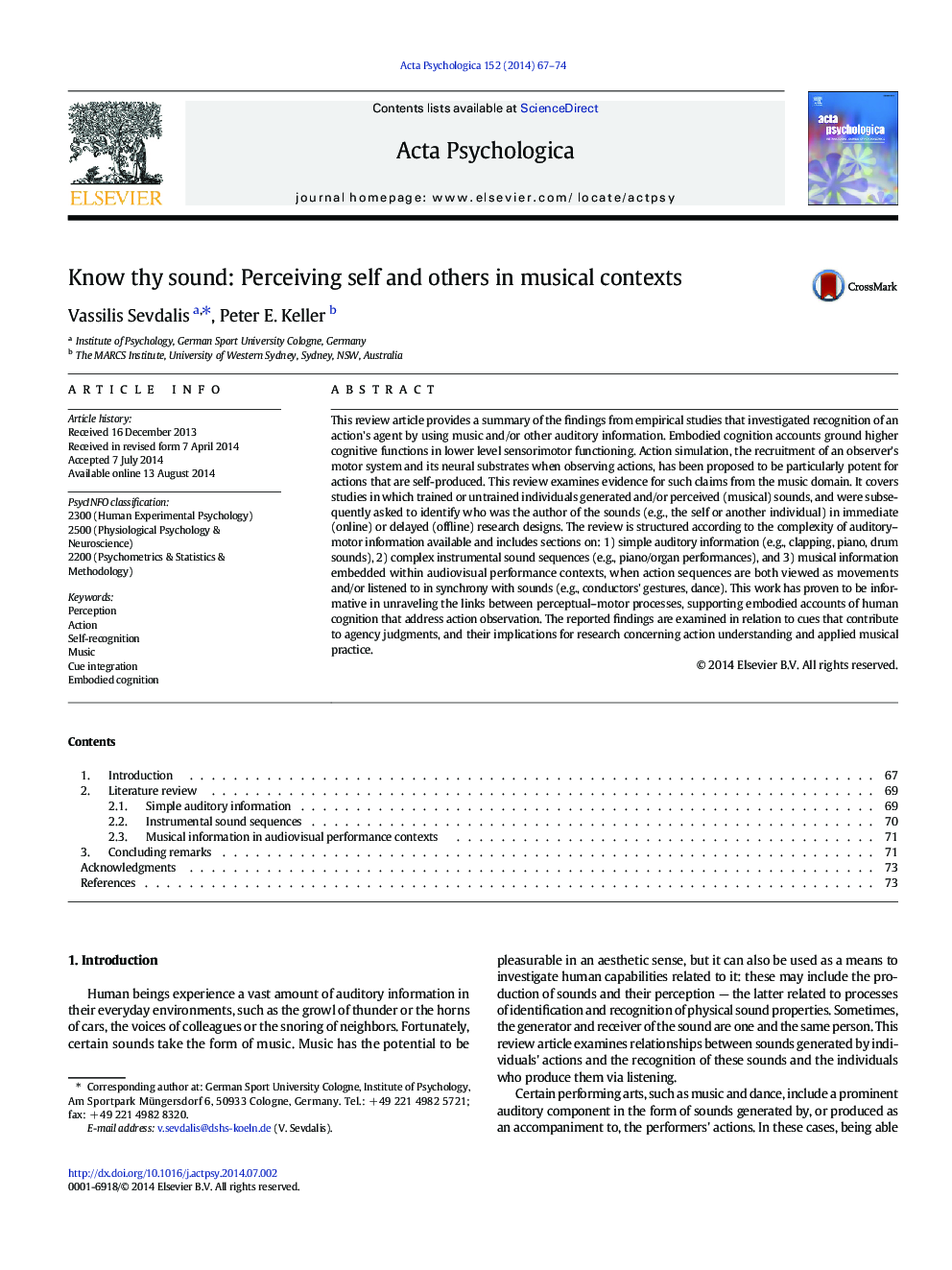| Article ID | Journal | Published Year | Pages | File Type |
|---|---|---|---|---|
| 919787 | Acta Psychologica | 2014 | 8 Pages |
•Self-recognition by musical sounds is a fertile domain for investigating agency.•Agency relies on action simulation based on perception–action links.•Cue integration is a key process in agency attribution in musical contexts.•Music research on agency has implications for theories of embodied cognition.•Implications for research designs and applied musical practice are discussed.
This review article provides a summary of the findings from empirical studies that investigated recognition of an action's agent by using music and/or other auditory information. Embodied cognition accounts ground higher cognitive functions in lower level sensorimotor functioning. Action simulation, the recruitment of an observer's motor system and its neural substrates when observing actions, has been proposed to be particularly potent for actions that are self-produced. This review examines evidence for such claims from the music domain. It covers studies in which trained or untrained individuals generated and/or perceived (musical) sounds, and were subsequently asked to identify who was the author of the sounds (e.g., the self or another individual) in immediate (online) or delayed (offline) research designs. The review is structured according to the complexity of auditory–motor information available and includes sections on: 1) simple auditory information (e.g., clapping, piano, drum sounds), 2) complex instrumental sound sequences (e.g., piano/organ performances), and 3) musical information embedded within audiovisual performance contexts, when action sequences are both viewed as movements and/or listened to in synchrony with sounds (e.g., conductors' gestures, dance). This work has proven to be informative in unraveling the links between perceptual–motor processes, supporting embodied accounts of human cognition that address action observation. The reported findings are examined in relation to cues that contribute to agency judgments, and their implications for research concerning action understanding and applied musical practice.
